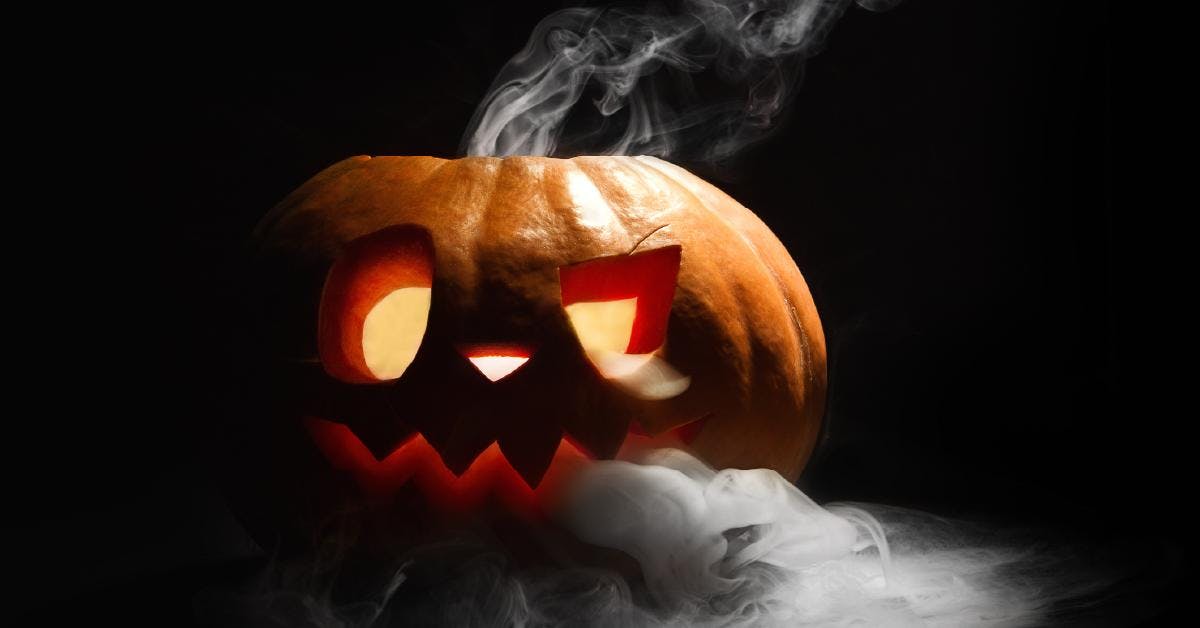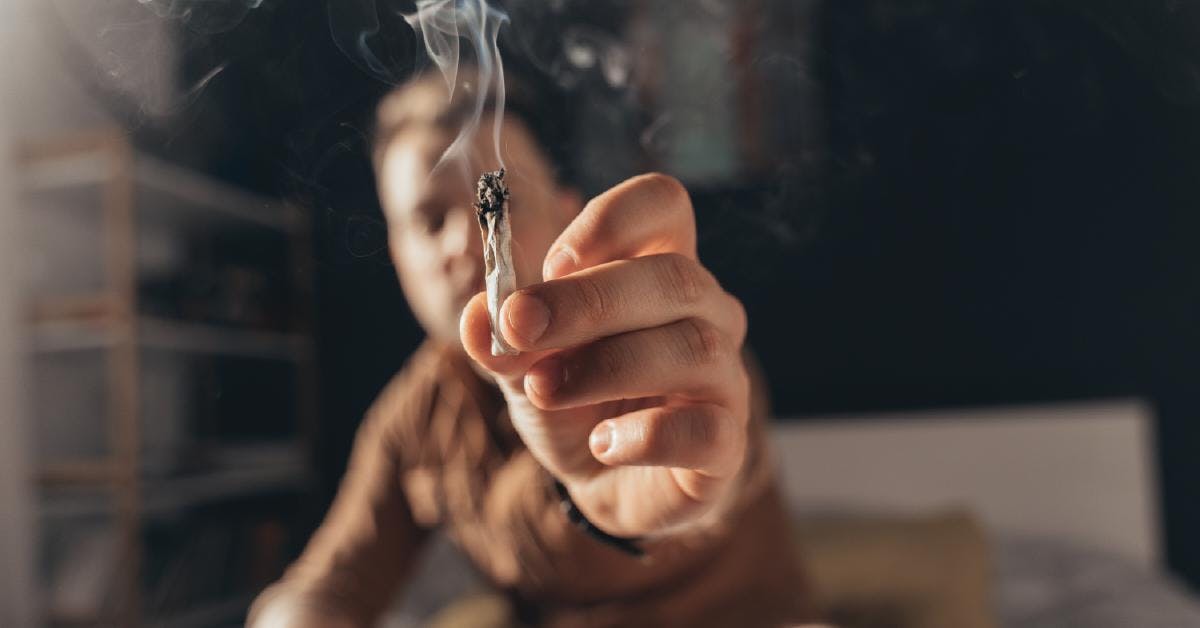In For a Scare? The Dangers of Delta‑8 THC
Halloween is just around the corner, and with the spooky season comes the usual influx of frightening rumors: razor blades inside of apples, psychoactive drugs being handed out alongside your kids’ Reese’s Cups, all the usual suspects. But there’s one thing slipping under many noses this fall despite holding potential for real danger: Delta‑8 THC.
What is Delta‑8?
Tetrahydrocannabinol (THC) is what gives marijuana its punch; it’s the main psychoactive agent found in the cannabis plant and has several varieties. Delta-9 THC is the most well-known and abundant variant that occurs naturally, accounting for 10-30% of the THC in most marijuana plants.
Delta‑8 THC is much less common, with only trace amounts (0.3%-0.5%) occurring naturally. Minus its rarity, it’s nearly identical to its big brother D-9—it has the same psychomotor effects like relaxation, pain relief, reduced concentration, and impaired motor skills.
Synthetic Strangeness
Delta-8 is often sold in the form of vapes, edibles, and other consumables. The problem is that cannabis plants don’t contain enough Delta‑8 on their own to be a viable source. This is where it differs the most from other THC products: it can’t be grown. It has to be made.
To achieve this, manufacturers use chemicals to synthetically convert CBD (hemp‑derived cannabidiol, for the nerds) and other hemp derivatives into Delta‑8. These chemical conversion processes are not regulated or approved by the FDA, so there’s really no telling what goes into synthesizing Delta‑8 from CBD. Harmful chemicals, contaminant by‑products, and artificial colors could be inside any Delta‑8 product. Because of this lack of regulation, purchasing or using Delta‑8 is a huge risk.
“Legal Weed?”
On top of that, since Delta‑8 is technically just a strange, Frankenstein-ed by-product of CBD, it’s completely legal in most U.S. states—and you don’t even need a medical marijuana license to buy it. It’s carried in many smoke shops despite having very similar psychoactive and intoxicating effects to traditional THC. Some people colloquially refer to Delta‑8 as “legal weed” or “diet cannabis” for this reason.
Even in states like Texas, where all use of marijuana is fully banned, Delta‑8 has managed to slip through the cracks, remaining legal and consequence‑free. (Ironically, in Colorado, it is illegal. They have state laws against the synthesizing of hemp derivatives.)
“False” Positives
As if the fuzzy legality of Delta‑8 wasn’t enough, it also causes problems with drug testing. During most lab‑based tests, a sample undergoes a two‑step process:
- First, there’s an initial screening that looks for the presence of any THC in a person’s system, no matter what strain. This mainly serves to eliminate negative samples. The presence of enough Delta‑8 can and will cause a positive test at this phase.
- If the initial screening is not negative, the sample is then sent through a confirmation test, which is much more sensitive and uses more robust technology to look for trace amounts of specific, known drug metabolites, such as Delta‑9 THC. Since Delta‑8 is so new, most confirmation tests aren’t equipped to test for it and simply can’t be positive at this phase. This means that even though a sample was positive during initial screening, it will ultimately be reported as negative. Samples like this are classified as a “false positive”.
The result: people are using Delta‑8 to get high and they’re getting away with it when they’re drug tested.
A recent study by Clinical Reference Laboratory looked at a selection of urine samples that were positive for marijuana during the initial screening but reported negative after confirmation and re-tested them to specifically look for Delta‑8. Nearly 30% of initially “false positive” tests came back as truly positive for Delta‑8 when re-tested[i]. Now that’s scary!
Copycat Foods
Delta‑8 is commonly sold and consumed as edibles; things like gummies, candies, and other food products that are imbued with THC and have intoxicating effects when eaten. Even though it’s a gentler “high” than what’s produced by Delta‑9, this intoxication still poses a major threat when many Delta‑8 edibles look almost identical to traditional, recognizable candies like gummy bears, gummy worms, sour belts, and peach rings. Some Delta‑8 manufacturers even go as far as to mimic brand‑name snacks like Doritos®, Cheetos®, Chips Ahoy, Pop Tarts®, and more. (Maybe take a second glance at those bagged chips and popcorn balls your kid gets while trick‑or‑treating. You never know.)
It would be extremely easy for consumers (especially children) to eat these edibles, mistaking them for their non-intoxicating counterparts. The FDA began cracking down on these “copycat foods” harshly this year due to the dangers they pose.
Should you be worried?
Delta‑8 THC poses more than a few safety risks.
- The process for its creation is completely unregulated, so there’s no way to be sure any Delta‑8 product is safe from contaminants and harmful chemicals.
- The legal loophole it currently sits in makes it possible to access marijuana, even in some of the most anti‑cannabis states.
- Since it’s a relatively new strain of THC, Delta‑8 users are passing drug tests despite getting high on it.
- Copycat edible products that mimic common candies and brand‑name snacks make it incredibly easy to become intoxicated by accident when you’re only trying to satiate a sweet tooth.
Despite these dangers and its widespread popularity, many people don’t know that Delta‑8 THC exists. Spread awareness by sharing this article and stay up to date on all the latest drug info at TEAM’s newsroom.
[i] Kuntz, D. J., PhD. (2022, March 11). Δ8‑THC Impact on Drug Testing. Clinical Reference Laboratory.





